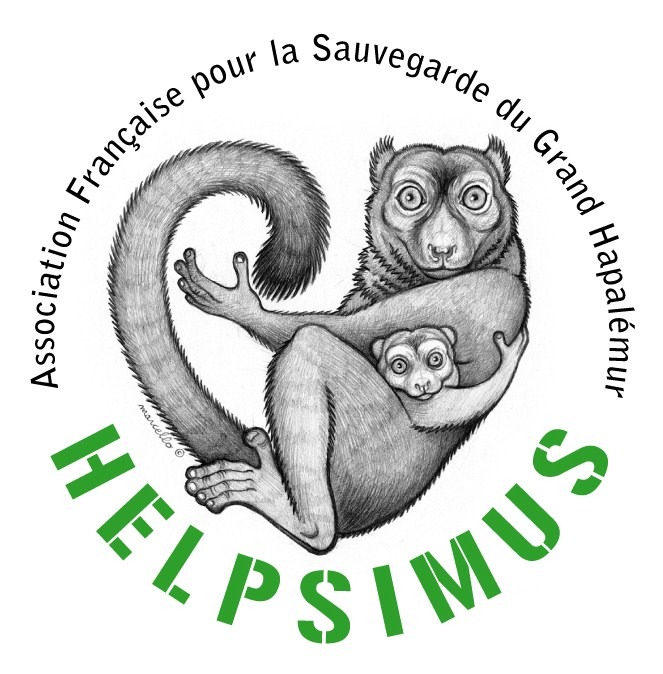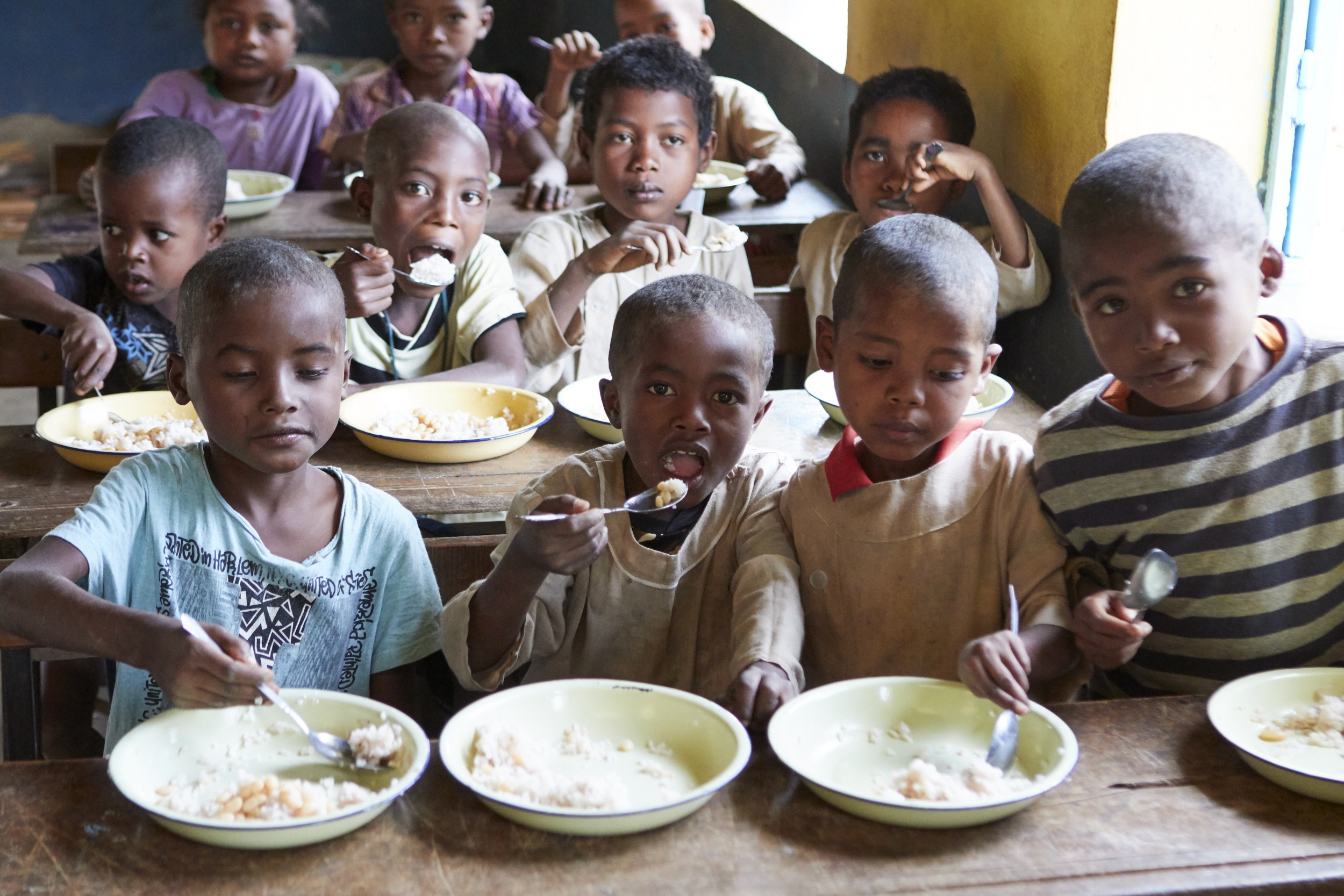
2020
Founded in 2009, the French association Helpsimus has set itself the mission of safeguarding the Greater Hapalemur (Prolemur simus) in Madagascar through the Bamboo Lemur programme, which combines scientific monitoring of the species, protection of its habitat and development aid for villages bordering groups of Greater Hapalemurs. As part of this scientific programme, Helpsimus has made education its priority.
Helpsimus provides funding for the education of children in 5 Fokontany (=Malagasy regions) located in the immediate vicinity of the habitat of the great hapalemurs. In these remote rural areas, people live below the extreme poverty line and practise subsistence farming. During the “hunger gap” between the end of the consumption of the previous harvest and the next harvest, when malnutrition is at its worst, school absenteeism rises sharply. Children have to work to help their parents or are unable to go to school because they do not have balanced meals. Against this backdrop, Helpsimus opened its first canteen in 2016 to distribute daily meals to village children during the lean period, followed by a second in 2020. By 2021, the association aims to open 3 new canteens.
The project : The Foundation responded to an appeal from the Helpsimus association to finance the construction and equipping of three primary school canteens in Madagascar.
The aim of the project funded by the Foundation is to provide the 350 pupils in these 3 schools with a daily meal during the four months of the year that correspond to the lean months, thereby helping to combat malnutrition and the drop-out rate among children. By being better nourished, the children pay more attention in class and thus increase their chances of doing better at school.
The school canteens are also an effective tool for supporting the development of local communities. The association is working on sustainable solutions to ensure that canteens are supplied in the long term, for example by producing rice or developing school vegetable gardens in each school. These solutions are aimed at improving the diversity of children’s menus, but are also a source of income for local people.
To find out more about the project, click here
© S. Meys
